- Home
- Janelle Taylor
Wild Winds Page 13
Wild Winds Read online
Page 13
“I don’t think they saw Ben’s mask slip, and they had to flee in a rush. Someone came to the door, saw what was happening, and shouted for help. The sheriff and some soldiers in town came running to rescue us. All of the robbers ran out the back door and rode away with the money.”
Is it wishful thinking, Maggie, or does she sound as if she’s speaking from rote instead of actual experience? “Barber and Jones never tried to approach you to threaten you about not testifying?”
“No. Why?”
“That’s just strange, considering they normally do that kind of thing to avoid being captured and prosecuted. So, you were positive the man from the bank was Ben Carver?”
“Yes, and that’s what I said on the witness stand.”
“How did your husband—” Maggie saw Matilda’s tension increase as the woman looked past her, and she heard the fence gate open and close.
“Here’s my husband now. I think you should speak with him.”
“Speak with me about what?” Frank asked as he joined them.
As his wife explained in a weak voice, Maggie felt as if the man were examining her thoroughly from hatted head to boot-clad feet, and in a manner she found offensive, but she smiled at him nonetheless.
“I’ll handle this matter,” he assured Matilda. “What is it you want from us, Miss.”
“Miss Margaret Anne Malone, sir, from Virginia,” she replied in the exaggerated southern accent she had been using since her arrival. She related what she had told his nervous wife earlier and asked, “Would you allow me to interview you for my story, sir? I would be most grateful.”
“What have you learned so far?”
“Not enough for an interesting story, only what the Yuma prison superintendent told me after the escape and what the Arizona Sentinel editor and his articles added. I spent the last two hours with him, and he directed me to you and your wife. I don’t want it to sound as if I’m reporting news, mostly old news at that; I want to concentrate on the people involved, how it affected them and their lives. Since you and your wife were major participants in that frightful event, a great portion of my story should feature you and your courage in court.”
“Come inside and have a seat, Miss Malone; this could be quite an interesting experience. Mattie, please make us some coffee.”
“Yes, dear, immediately.”
The woman entered the house before Frank held the door open for Maggie, who praised herself for spotting one of his weak points: vanity. She sat down on a couch in an immaculate parlor with nothing out of its proper place. She watched Frank settle himself on a matching one beyond the low table between them. He was well dressed in an expensive suit and leather boots, the image of a gentleman and prosperous businessman, but she didn’t like him.
Maggie opened her case and prepared her paper and pen for taking notes. “Would you tell me what happened at the bank that day?” She saw how his bold gaze lowered to her pad and locked on it, not on her face, before he began his narrative.
“Mattie and I were there doing business, along with several others, when four bandits came in the back door and robbed us while a fifth man stayed with their horses. They took the bank’s money, and the customers’ valuables. A gray-eyed, skinny man collected the cash from the teller’s drawer and another one cleaned out the vault while a redhaired, tall man held his guns on us. We had to stuff everything we had with us in a sack Ben Carver passed around. When a customer at the door window saw what was happening, he hightailed it down the street shouting for the sheriff. That redhead heard him and told the others it was time to make a run for it. The teller reached for a gun under the counter, so Ben shot him and escaped before help arrived. We never got any of our belongings or money back.”
Maggie tapped her pen against her lips to distract him as she said, “That’s almost what the editor told me earlier. Why was the bank vault open? Isn’t that unusual?”
“The owner opened it to remove some papers he was holding for me. He was knocked unconscious by that redhead right after they sneaked into the bank, so he didn’t see anything that happened afterward.”
As Maggie continued her questioning, she noticed that Frank stared at the booted foot resting on his knee when responding.
“Why was the back door unlocked? That sounds strange.”
“The owner said he must have forgotten to relock it after his arrival.”
“Did the sheriff ever discover who the other four bandits were?”
“No, but he suspected the identity of two from our partial descriptions. Everybody knows how Pete Barber and Slim Jones look and know they ride together, and usually Toby Muns and Coot Sayers tag along. But none of us could swear it was any of them since we didn’t see their faces.”
“But you and your wife did see Ben Carver’s.”
“Yes, when his mask slipped down for a moment.”
Maggie observed he still didn’t look her in the eye when he talked, but his rude gaze traveled the rest of her body with frequency. “Did Carver or any of the others present realize you two had seen Carver’s face?”
“I’m sure they didn’t or we’d all be dead. The others had their attention elsewhere and Ben was looking down at the collection bag he was holding. Fortunately Mattie and I averted our gazes before he looked up again. Ah, here’s our coffee. How do you take yours?”
“With two spoons of sugar, please. Thank you, Mrs. Moore,” Maggie said as the cup was passed to her.
Matilda smiled and nodded, then prepared her husband’s beverage.
“That will be all, my dear.” Frank said, “You can return to your chores. I’ll call you if I require anything else.”
Maggie waited until the woman left the room, before turning her attention back to Frank. “It was fortunate for you and your wife that none of the culprits realized you had seen Carver’s face,” she said, “because I hear Barber and Jones are notorious for not leaving witnesses behind, or for returning later to get rid of them before trial. I’m sure that possibility must have worried you.”
“Yes, but a man can’t shirk his duty or live in fear. Besides, we didn’t say they were involved, so they had no reason to come after us.”
“But you exposed their friend and helped send him to prison. Are you worried about Carver coming here for revenge now that he’s on the loose?”
“No, because his face is too well known for him to go unnoticed.”
“But he could sneak in during the night, couldn’t he?”
“I have a big and vicious dog I keep in the yard at night. I’d keep it there during the daytime, too, but Mattie’s afraid of him and he only obeys my commands. He’s locked in the barn in daylight hours.”
That revelation explained to Maggie why the picket fence was so tall and strong, to contain the “vicious” animal during the night. Yet, if Moore wasn’t afraid, why did he need a guard dog? “I understand, because big and mean dogs frighten me, too.” She changed the subject abruptly to ask Frank, “Exactly how do you know Ben Carver?” She saw him straighten his position, put aside his cup, and look her in the eye.
“Me and his father have had several … disagreements in the past over the location of the territorial capital. Since I’m in the lumber business and he’s in the … entertainment business, that location is important to the prosperity and growth of a town. We butted heads over that rivalry. Newl wouldn’t admit to the real reason why we got the capital: that Tucson leaned toward the Confederacy during the war with the North and was being punished by the government. Those Southern sympathizers actually held a convention in Tucson and declared Arizona a Confederate territory and elected a delegate to its Congress. As soon as the war ended, the fight was on for who would get the capital. Besides, we had Fort Whipple to protect the new government like it was protecting the mines and timber here, along with settlers and ranchers.”
“But Tucson lured it away for ten years, from ‘67 to ‘77, right?”
“Yes, but it’s back here now, and this is where
it will remain. I wasn’t the only one spending his hard-earned money to recover it. Our Buckey O’Neill has fought Bob Leatherwood of Tucson as fiercely as I’ve battled with Newl. We garnered enough votes to get it back because every man in this area turned out at the polls. I made sure of that by putting my money where my mouth was.”
“You purchased votes; is that what you mean?” She saw him glare.
“There’s nothing illegal about compensating men for taking time off from work to come vote. Poor folk can’t afford to lose a day’s wages.”
“Oh, I didn’t mean it to sound as if I were implying otherwise, sir. Please forgive me if I failed to word my question properly. I’m still learning this reporting and interviewing business. It’s just that I was so fascinated by the history you were relating that I didn’t think before I spoke. I fully agree with your motive and applaud your generosity toward those less fortunate than you are,” Maggie slyly masked her intentionally provoking statement.
“Don’t worry about it, Miss Malone; I realize you’re a greenhorn.”
“Thank you for being patient and understanding with me, sir. Let me check my notes for a moment,” she said, and feigned doing so. She looked up to find him gawking at her, but pretended not to notice as she needed more information from him. “I understand Mr. Newl Carver testified his son was on a hunting trip with him when the crime was committed and that Ben Carver swore he was innocent.”
“That’s true, but Newl and his son both lied on the witness stand, and the jury and judge didn’t believe them. Ben couldn’t be in two places at one time, and I saw him here that day. Newl’s lucky they didn’t toss him into jail for perjury.”
Methinks that’s sheer hatred in your voice and eyes; I wonder why. “It’s propitious you and your wife recognized Carver or that crime would have gone unresolved and at least one villain unpunished. But I can understand why a father would lie to save his only son.”
“I wouldn’t know; I don’t have any children, not yet anyway.”
Maggie detected a suspicious bitterness in Frank’s voice. She deduced that Ben’s lawyer had overlooked two vital points during the trial to evoke a crucial “shadow of a doubt” with jurors. She broached the first one with Frank, “Is Ben Carver what you westerners call a legendary gunslinger?”
“No, why?”
“I just presumed he must be fast, skilled, and alert to have been the one who drew his weapon and shot the teller when there were two villains standing closer to him— and especially with the customer counter and protective bars separating them, plus Carver holding a collection bag with both hands. He must have drawn and fired as fast as lightning strikes.” She saw him scowl for a minute before relaxing.
“After a warning shout from the leader, the other two ran for the back door and Ben drew his pistol. I suppose he saw the teller’s movement and reacted to it. At that point, things happened fast and furious, so we all hit the floor to elude stray bullets.”
“That was hasty and clever thinking on your part, sir, and probably saved your life,” Maggie said. As Frank smiled in pleasure, she broached the second intriguing point. “That leader sounds like a careless man since he didn’t assign a lookout—I guess that’s what it’s called—on the front door or keep a watch on it for intrusion himself. Perhaps such an oversight in the future will be his undoing; I hope so.”
“Me, too, Miss Malone.”
She asked a few more simple questions, then said, “I want to thank you and your wife for assisting me with this story. After it’s published, I’ll send you a copy of the newspaper, autographed by me, of course. If you can’t think of anything else to tell me, I’ll be leaving now.”
“Nothing more. I wish you luck with the article and your new job.”
Maggie closed her case and stood as she said, “Thank you, sir; that’s very kind and generous of you, as were your help and hospitality.”
As they were heading for the door, she paused, turned, and said, “Oh, if I hear or read about Ben Carver returning to Prescott, may I come back and interview you again?” Get that lecherous glaze out of your eyes, you snake in the grass! For heaven’s sake, your new wife is in the next room!
“That will be fine with me, and I know I would find it just as enjoyable as your visit today, but I won’t be seeing his face again. I’m sure the Law will have him back in custody and prison very soon.”
“I hope so, sir, because criminals shouldn’t be running around loose and committing more wicked deeds against innocent people. Good-bye.”
Maggie stopped by to see the sheriff, who believed Ben was guilty. He was certain Newl had lied on the witness stand in a vain attempt to save his son from prison but that a merciful judge and court hadn’t filed any perjury charges against the distraught father. When she asked the lawman why Ben wasn’t hanged, she was told that wasn’t the type of punishment for bank robbery.
Afterward, she met with the bank teller who had a permanent limp but was in no danger of dying from his past wound, as Newl had claimed in Wilcox sixteen days ago. The reedy-framed man told her he didn’t see Ben’s face or hear any names spoken that day. He also said he shouldn’t have gone for a gun hidden under the counter, but he panicked because he feared the bandits would kill all of them before leaving and it was his duty to protect the bank’s money and customers.
He said he didn’t know why they weren’t all killed, “because the robbers certainly had plenty of time to do us under and get away clean. I guess God protected us.”
When she queried him about the same two overlooked points she had asked Frank about, she found his responses interesting.
As she departed, Maggie told herself that so far Ben’s conviction still relied solely on the Moores’ testimonies, claims she now found dubious, which led her closer to believing her stepbrother truly was innocent.
When she returned to her hotel room, weary and befuddled, Maggie found two telegrams—Abby’s and her mother’s —shoved under the door as she requested earlier. As prearranged for safety and secrecy, both replies were identical: Everything fine here.
She sighed in relief, though she yearned for more news, then headed for the wash basin to freshen up before meeting Hawk for supper downstairs later. She knew if she hurried, she would have just enough time to finger through the trial notes the Sentinel editor had made; that would explain her knowledge of the details to Hawk when she discussed them with him this evening to extract his professional opinions.
As they awaited their food, Maggie told him about her talks that afternoon and her plans to visit the judge and prosecuting attorney tomorrow and some jury members to see if they voted their consciences or fears. “According to what I’ve learned so far, Ben Carver and his father vowed he was innocent,” Maggie confided. “The Moores acted strange during my interviews with them, as if they were hiding something. I got the distinct impression that Frank Moore hates both of the Carver men, especially the father, and he appeared to take exceptional joy in putting the son behind bars. He’s well liked and respected and trusted here, but he didn’t give me that same opinion of him. In fact, I found him most unlikable.”
While their food and drinks were being served, Hawk remained silent. Although he had shadowed her the entire time, he hadn’t gotten close enough to her meetings to overhear any of them. He had seen her go to the telegraph office, but didn’t know if she sent or received messages or both. But the coded telegram waiting for him, which he had collected and read after her return to the hotel, had been a pleasing one. He learned she had been forthright with him in most areas. She and the Mercers were from Virginia, and she had attended boarding school back East with Abigail. The Malones had moved to Fort Worth after the war between the States, where they ranched until Jed’s death in ‘77. The widow had sold out and moved away, but he didn’t know yet to what location; perhaps it was back to Virginia, but no newspaper there had a Margaret Anne Malone as an employee. Hopefully when he checked for another telegram in the next town they visited, h
e would receive more facts about her and her life since ‘77, especially clues about her relationship with Ben Carver.
Alone again, he ventured, “So, you think they lied about him?”
After sipping tea, Maggie said, “I don’t know, but there seem to be a lot of convenient coincidences and mysteries.”
“What do you mean?” Hawk asked as he speared a piece of roast.
“First, the bank vault was unlocked at Frank’s request. Second, the back door wasn’t bolted by the owner. How did the bandits know to check it and use it to slip in without notice from the street? Third, the one man in the gang whom Moore knew had his mask slip down just as the culprit was standing in front of him; yet, none of the outlaws or others present observed the Moores actually seeing his face. Fourth, the accused just happens to be the son of an enemy, a man who didn’t have a credible alibi for his whereabouts that day. Fifth, why didn’t the leader—if it was a clever man like Barber—post a lookout on the front door, or stand guard on it himself? Sixth, if as Moore said, ‘Everybody knows how Pete Barber and Slim Jones look,’ why didn’t he recognize them? Even if you tied a bandanna over your mouth and nose, I would recognize you by your eyes and hair, especially if it was bold red hair or ghostly gray eyes. Why would Moore be brave and civicminded enough to expose Carver, but hold silent about Barber and Jones, when he would be safer with them behind bars?”
Hawk stayed silent and nibbled at his food as she paused to wet her throat because he didn’t want to derail her from her line of thought.
“The Sentinel editor gave me a copy of the trial testimony and notes he used to write his many articles; and I read them earlier and made some intriguing discoveries. Either Carver’s lawyer was incompetent or careless or was bribed because he missed many of those points and others.” She told him details about the teller’s wounding, then reasoned, “Even the teller doesn’t know who shot him; he said his head was lowered at that time. If Carver was holding a bag of valuables he was collecting, I doubt he could draw and fire that fast. Moore also said they all hit the floor after the leader shouted a warning, so how could he see who shot that man? And with obstacles between them, how did Carver shoot him in the thigh, not in his chest or head or an arm? The guilty verdict hinges on the Moores’ testimonies, and I’m unconvinced they’re credible.”

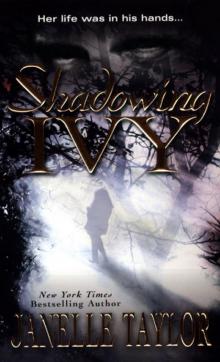 Shadowing Ivy
Shadowing Ivy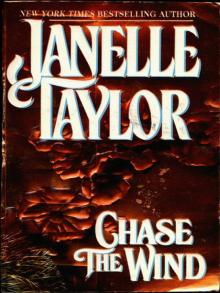 Chase The Wind
Chase The Wind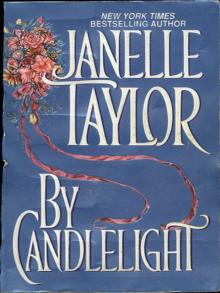 By Candlelight
By Candlelight Kiss of The Christmas Wind
Kiss of The Christmas Wind Stardust And Shadows
Stardust And Shadows Forever Ecstasy
Forever Ecstasy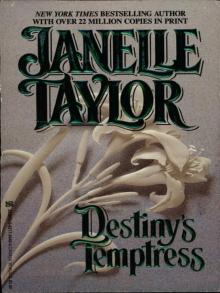 Destiny's Temprtress
Destiny's Temprtress Haunting Olivia
Haunting Olivia Wild Is My Love
Wild Is My Love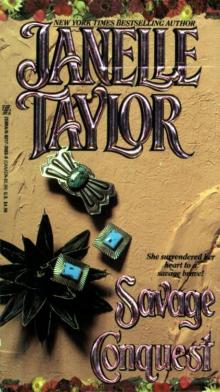 Savage Conquest
Savage Conquest Valley of Fire
Valley of Fire A Christmas Surprise
A Christmas Surprise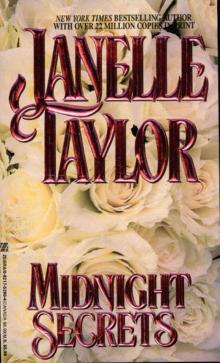 Midnight Secrets
Midnight Secrets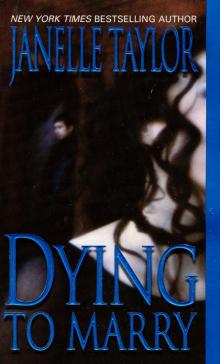 Dying To Marry
Dying To Marry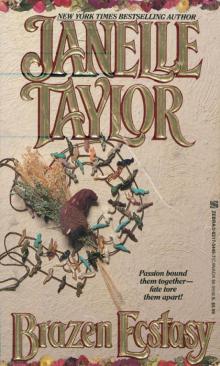 Brazen Ecstasy
Brazen Ecstasy Someday Soon
Someday Soon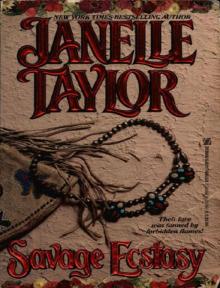 Savage Ecstasy
Savage Ecstasy Can't Stop Loving You
Can't Stop Loving You Golden Torment
Golden Torment Forbidden Ecstasy
Forbidden Ecstasy Fortune's Flames
Fortune's Flames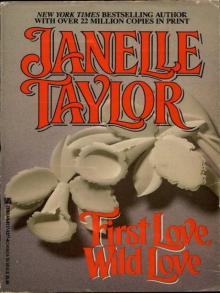 First Love Wild Love
First Love Wild Love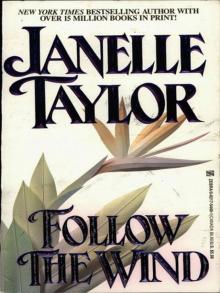 Follow The Wind
Follow The Wind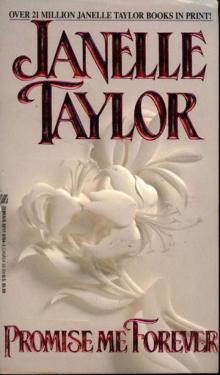 Promise Me Forever
Promise Me Forever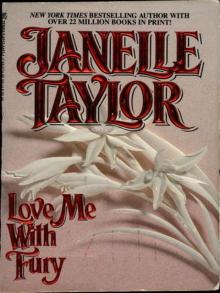 Love Me With Fury
Love Me With Fury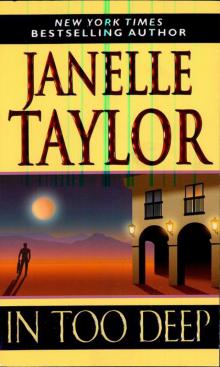 In Too Deep
In Too Deep Lakota Winds (Zebra Historical Romance)
Lakota Winds (Zebra Historical Romance) Anything For Love
Anything For Love Cherokee Storm
Cherokee Storm Straight From The Heart
Straight From The Heart Don't Go Home
Don't Go Home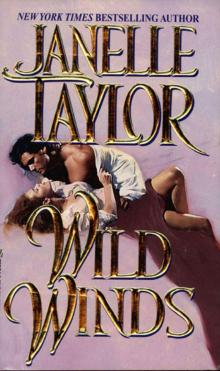 Wild Winds
Wild Winds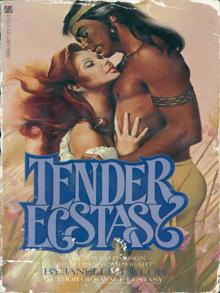 Tender Ecstasy
Tender Ecstasy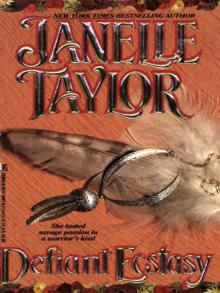 Defiant Ecstasy
Defiant Ecstasy Defiant Hearts
Defiant Hearts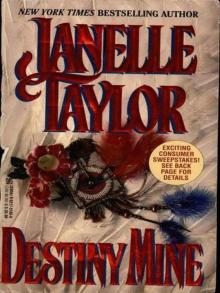 Destiny Mine
Destiny Mine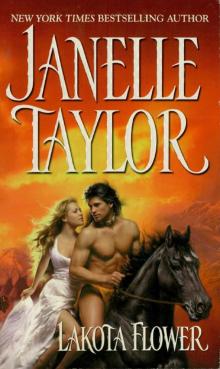 Lakota Flower
Lakota Flower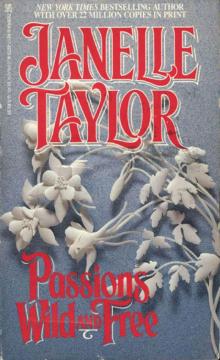 Passions Wild And Free
Passions Wild And Free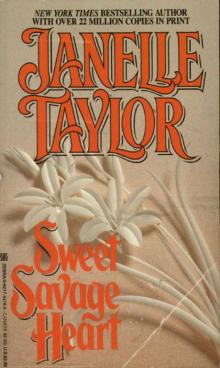 Sweet Savage Heart
Sweet Savage Heart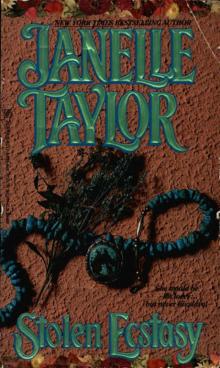 Stolen Ecstasy
Stolen Ecstasy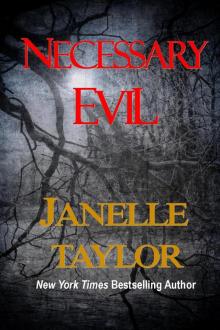 Necessary Evil
Necessary Evil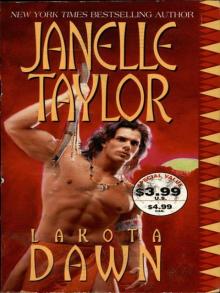 Lakota Dawn
Lakota Dawn